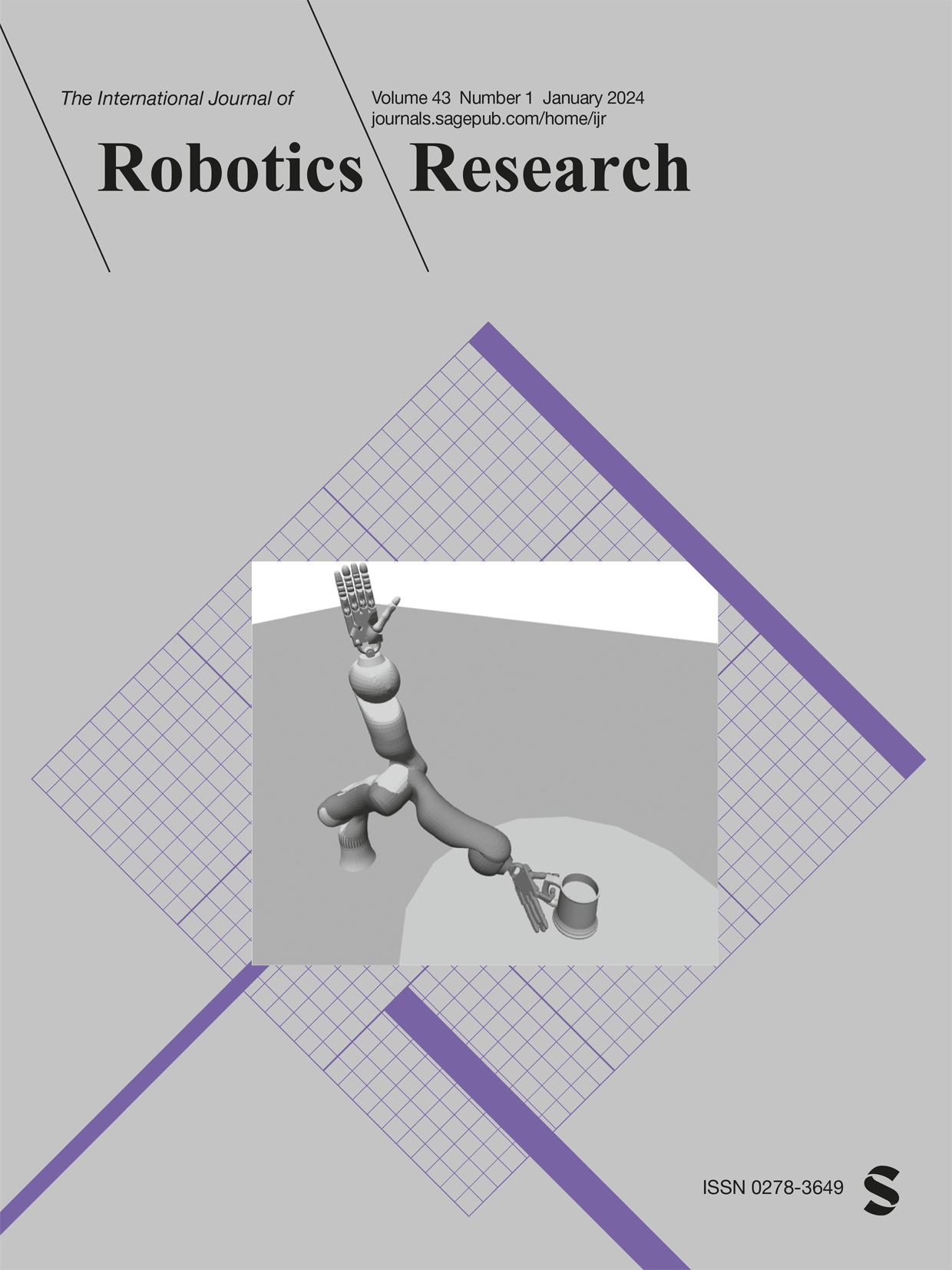Under-canopy dataset for advancing simultaneous localization and mapping in agricultural robotics
IF 5
1区 计算机科学
Q1 ROBOTICS
引用次数: 0
Abstract
Simultaneous localization and mapping (SLAM) has been an active research problem over recent decades. Many leading solutions are available that can achieve remarkable performance in environments with familiar structure, such as indoors and cities. However, our work shows that these leading systems fail in an agricultural setting, particularly in under the canopy navigation in the largest-in-acreage crops of the world: corn ( Zea mays) and soybean ( Glycine max). The presence of plenty of visual clutter due to leaves, varying illumination, and stark visual similarity makes these environments lose the familiar structure on which SLAM algorithms rely on. To advance SLAM in such unstructured agricultural environments, we present a comprehensive agricultural dataset. Our open dataset consists of stereo images, IMUs, wheel encoders, and GPS measurements continuously recorded from a mobile robot in corn and soybean fields across different growth stages. In addition, we present best-case benchmark results for several leading visual-inertial odometry and SLAM systems. Our data and benchmark clearly show that there is significant research promise in SLAM for agricultural settings. The dataset is available online at: https://github.com/jrcuaranv/terrasentia-dataset .推进农业机器人同步定位与制图的冠下数据集
同时定位与制图(SLAM)是近几十年来研究的热点问题。许多领先的解决方案可以在室内和城市等熟悉结构的环境中实现卓越的性能。然而,我们的工作表明,这些领先的系统在农业环境中失败了,特别是在世界上面积最大的作物:玉米(Zea mays)和大豆(Glycine max)的冠下导航中。由于树叶、光照变化和明显的视觉相似性导致的大量视觉混乱的存在,使这些环境失去了SLAM算法所依赖的熟悉结构。为了在这种非结构化的农业环境中推进SLAM,我们提出了一个综合的农业数据集。我们的开放数据集包括立体图像、imu、轮式编码器和GPS测量数据,这些数据来自移动机器人在玉米和大豆田不同生长阶段的连续记录。此外,我们还介绍了几种领先的视觉惯性里程计和SLAM系统的最佳基准测试结果。我们的数据和基准清楚地表明,SLAM在农业领域有很大的研究前景。该数据集可在线获取:https://github.com/jrcuaranv/terrasentia-dataset。
本文章由计算机程序翻译,如有差异,请以英文原文为准。
求助全文
约1分钟内获得全文
求助全文
来源期刊
CiteScore
22.20
自引率
0.00%
发文量
34
审稿时长
6-12 weeks
期刊介绍:
The International Journal of Robotics Research (IJRR) has been a leading peer-reviewed publication in the field for over two decades. It holds the distinction of being the first scholarly journal dedicated to robotics research.
IJRR presents cutting-edge and thought-provoking original research papers, articles, and reviews that delve into groundbreaking trends, technical advancements, and theoretical developments in robotics. Renowned scholars and practitioners contribute to its content, offering their expertise and insights. This journal covers a wide range of topics, going beyond narrow technical advancements to encompass various aspects of robotics.
The primary aim of IJRR is to publish work that has lasting value for the scientific and technological advancement of the field. Only original, robust, and practical research that can serve as a foundation for further progress is considered for publication. The focus is on producing content that will remain valuable and relevant over time.
In summary, IJRR stands as a prestigious publication that drives innovation and knowledge in robotics research.

 求助内容:
求助内容: 应助结果提醒方式:
应助结果提醒方式:


